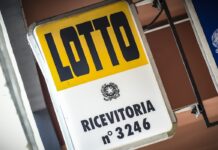
Viterbo, Gdf arrests business agent who offered services provided by Lottonut
The Sanremo casino goes on strike again: 64% of employees join
(Jamma) The Competition and Market Authority, called to express its opinion on the current regulation of the retail sale of tobacco, has expressed an opinion against the forms of structural planning of the offer which establish quantitative limitations of market operators and, between them, at the minimum distances between points of sale. For the Authority "The elements of rigidity deriving from the admission to operate of a lower number of subjects than that which would determine the market, in fact, are not, as a rule, necessary and proportionate to the pursuit of objectives of general interest“; in this regard hopes in a change in the regulation concerning access to the market for the retail sale of tobacco products,"so that minimum distances, assessments of the productivity of businesses, discrimination between operators based on the title of business and, more generally, all forms of planning of the offer structure are abolished".
Below is the full text of the Authority
The Competition and Market Guarantor Authority, in its meeting of 11 June 2013, resolved to express an opinion pursuant to article 21 of the law of 10 October 1990, n. 287, relating to the current regulation of the retail sale of tobacco, most recently amended by art. 24, paragraph 42, of Legislative Decree no. 98/11, containing "Urgent provisions for stabilization financial” and converted with amendments by law n. 111/11, and by the DM 21 February 2013, n. 38, "Regulation governing the distribution and sale of smoking products".
The distribution of tobacco in Italy has traditionally been regulated by articles 21, 22 and 23 of the law of 22 December 1957, n. 1293, which identifies three methods of resale: (i) ordinary resale, (ii) special resale, and (iii) license. While the ordinary outlets are structures specifically responsible for the sale of tobacco and other monopoly products (eg., tobacconists), special retailers "are set up to meet the particular needs of the public service also of temporary when, in the opinion of the Administration, the conditions for proceed with the establishment of an ordinary resale, or with the issue of a licence"(Article 22).
In particular, the special outlets are located in particular structures such as ports and airports or service areas, and can only be set up if service needs are recognized which cannot be met by means of ordinary outlets or licences. Licenses are instead instituted in highly frequented bars, but, pursuant to art. 23, "the resale closest to the establishment to which the license is granted supplies the latter with the kinds, except different decision of the Administration".
As known, with circular no. 04/63406 of 25 September 2001, the Autonomous Administration of State Monopolies made the opening of new ordinary and special stores subject to compliance with a series of requirements relating to minimum distances from the nearest store, which varies according to the size of the population of the Municipality, as well as minimum productivity. In line with the circular of the Autonomous Administration of State Monopolies, art. 24, paragraph 42, of Legislative Decree no. 98/11 established that:
(i) with reference to ordinary resales, the“establishment of retail outlets ordinary [can take place] only in the presence of certain distance and productivity requirements minima", and of “rationalization of the sales network, also through the identification of criteria aimed at regulating the location of the points of sale, in order to reconcile, in compliance with the protection competition, the need to guarantee users a widespread sales network on the territory, with the primary public interest of health protection";
(ii) with reference to special outlets, which the“establishment of special retail outlets [may happen] only where found an objective and effective service requirement, to be assessed based on the actual location of the other points of sale already existing in the same reference area, as well as by virtue of parameters certain, predetermined and uniformly applicable throughout the country, aimed at identifying and qualify the potential demand for tobacco referable to the proposed location";
(iii) with reference to licenses, that the possible issue or renewal of licenses will be evaluated "In relation to the complementary and non-superimposable nature of the same with respect to the resales of kinds of monopoly, including through the identification and application, respectively, of the distance criterion in the release hypothesis, and the minimum productivity criterion for the renewal”, then delegating the identification of the specific distance criteria for the establishment of ordinary and special retail outlets and for the issue of licenses to a subsequent regulation of the Minister of Economy and Finance to be adopted by 31 March 2013. In implementation of the criteria established by art. 24, paragraph 42, Legislative Decree no. 98/2011, the DM n. 38/2013 introduced minimum distances and minimum productivity criteria for the opening of new ordinary tobacco shops and qualified the tobacco resale activity at the distribution plants as ordinary, thus subjecting it to both the requirements established for ordinary sales on minimum distances and minimum productivity1. The art. 4 of the DM also provides that "[l]e special retail outlets can be set up to meet the concrete and particular needs of which in article 22 of the law of 22 December 1957, n. 1293, to be evaluated on the basis of: a) the location of the other points of sale already existing in the same reference area; b) of the possible overlap of the resale to be established with respect to the other points of sale already existing in the same reference area; c) of the significant economic damage that from the new resale would result for those already existing in the same reference area”. Quite similar criteria are provided by art. 7 for the issue of licenses, among which the provision that licenses cannot be awarded if the distance from the nearest retailer is less than 100 meters, or if vending machines are installed at retail outlets located within predetermined distances.
On this point, the Authority intends to make the following considerations.
The provision of minimum distances between retailers and the identification of minimum productivity criteria of existing outlets for the opening of new outlets are in clear contrast with the provisions of art. 34 of the decree Save Italy, which in paragraph 2 establishes that "[l]to regulate economic activities is based on the principle of freedom of access, organization and performance, without prejudice to imperative needs of general interest, constitutionally relevant and compatible with the Community legal system, which can justify the introduction of prior administrative acts of aconsent or authorization or control, in compliance with the principle of proportionality”. Paragraph 3 then establishes that “sThe following restrictions established by current legislation have been repealed: (…) b) the imposition of minimum distances between the locations of the offices assigned to the exercise of one economic activity”, while paragraph 5 establishes that “[l]Competition Authority e of the market is required to render a compulsory opinion, to be rendered within thirty days starting from the receipt of the provision, regarding compliance with the principle of proportionality on government bills and regulations restricting access e to the exercise of economic activities”. Therefore, a double violation of the law is expected, the first of a substantial nature to the extent that art. 24, paragraph 42, Legislative Decree no. 98/2011, and the DM n. 38/2013 which implements it, contemplate restrictions on the exercise of economic activities in contrast with art. 34, paragraphs 2 and 3, of the Salva Italia decree; the second of a procedural nature to the extent that the text of the DM was not sent before the adoption to the Authority to render a mandatory opinion on compliance with the principle of proportionality as envisaged by art. 34, paragraph 5, of the Salva Italia decree.
Moreover, from the point of view of proportionality, the Authority believes that the restrictions contained in the legislation described above cannot be justified by the intent of “to reconcile, in respect for the protection of competition, the need to guarantee users a sales network widespread throughout the territory, with the primary public interest of health protection consisting in preventing and controlling any possibility of offering tobacco to the non-public justified by the effective demand for tobacco" (in this sense, see article 24, paragraph 42, letter a) of Legislative Decree no. 98/2011). And in fact the excessive onerousness of the measures imposed is evident even if only considering that the criterion of minimum distances between shops, allegedly suitable for discouraging the consumption of tobacco by making procurement more difficult, is accompanied by the further criterion of minimum productivity of existing outlets which it is obviously and exclusively aimed at protecting the interest of the category in the profitability of the activity carried out. More generally, although with reference to the fixing of minimum resale prices for cigarettes, the Authority has in the past considered that the legislator has at its disposal a series of less restrictive instruments for the protection of health, "such as, for example, information campaigns on health risks from smoking and smoking bans in a wide range of places".
In any case, the provision contained in art. is completely unjustified with reference to the protection of health. 23 of the law n. 1293/1957, still in force today, by virtue of which the license holders are required to purchase tobacco for resale exclusively from ordinary retailers. This is a particularly restrictive provision as it is likely to negatively affect the profits generated by the license holders and therefore to intervene in a discriminatory way on the competitive capacity of these subjects with respect to ordinary resellers, without being at the same time linked to the need to protect public health .
As regards the exercise of the sale of tobacco at fuel distribution plants, the introduction of minimum productivity criteria by Ministerial Decree no. 38/13 is for the same reasons in evident contrast with the liberalization measures contained in the decree Save Italy and with the art. 28, paragraph 8, letter b), of Legislative Decree no. 98/11. In fact, the DM n. 38/2013 effectively introduces a minimum surface area requirement (equal to 50 m30) if other goods in addition to tobacco are marketed in the premises, a requirement that is considered ultraneous and more restrictive than that contained in the primary standard (equal to XNUMX sqm.), limiting the latter only to the case in which the sale of tobacco is exclusively carried out at the premises.
Therefore, the Authority reiterates its orientation, expressed several times also with reference to the sector in question, of opposition to the forms of structural planning of the offer which establish quantitative limitations of market operators and, among them, the minimum distances between points of sale. The elements of rigidity deriving from the admission to operate of a lower number of subjects than that which would determine the market, in fact, are not, as a rule, necessary and proportionate to the pursuit of objectives of general interest.
The Authority hopes that the observations formulated above will be taken into consideration for the purpose of amending the regulation concerning access to the market for the retail sale of tobacco products, so that the minimum distances, the productivity assessments of the establishments, the discrimination between operators based on the right to exercise the activity and, more generally, all forms of planning of the supply structure.










